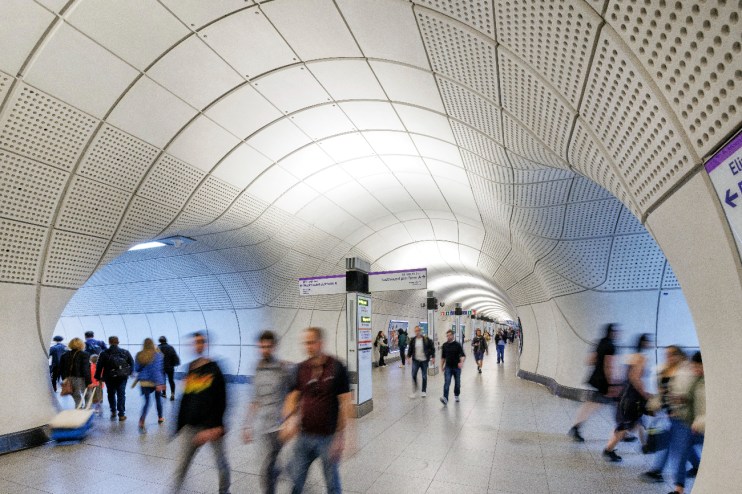London Underground: Sadiq Khan’s Friday travel discount fails to reverse work from home trend

An attempt by Sadiq Khan to boost Friday commuting by offering discounted off-peak tube and rail fares barely impacted passenger numbers, new data has revealed.
The Mayor of London launched a trial for three months between eight March and 31 May, covering pay-as-you-go contactless and oyster fares on London’s underground and rail network.
It was intended as a solution to the huge decline in passenger numbers seen across the underground since Covid-19 wiped out traffic and companies began encouraging more home working.
Some £24m of the Mayoral budget was allocated to cover the cost for Transport for London (TfL) and national rail operators.
During the trial, prices for commuting on the underground at peak times from Zone 6 and Zone 1 dropped from £5.60 to £3.60.
But average underground passenger numbers over the period rose only marginally from 3.2m last year to 3.3m this year, according to TfL data first reported by the Financial Times.
The trial’s failure will fuel questions over the purpose of the scheme, which was introduced by Khan ahead of his successful bid for a historic third term as London mayor.
Experts have speculated the discount offered was not large enough to make the typical London commuter opt for a trip to the office on a Friday.
A TfL spokesperson said: “We continue to analyse the impact of our trial of off-peak pay as you go fares on Tube and rail services on a Friday, which ended on 31 May 2024.
“This analysis will take into account a number of aspects including assessing changes to both morning peak ridership and overall daily ridership, as well as the impact to businesses across London.”
Between 2019 and 2021, annual tube traffic on Friday’s fell close to two-thirds from 223m to 96m. However, it has since increased to 172m in 2023.